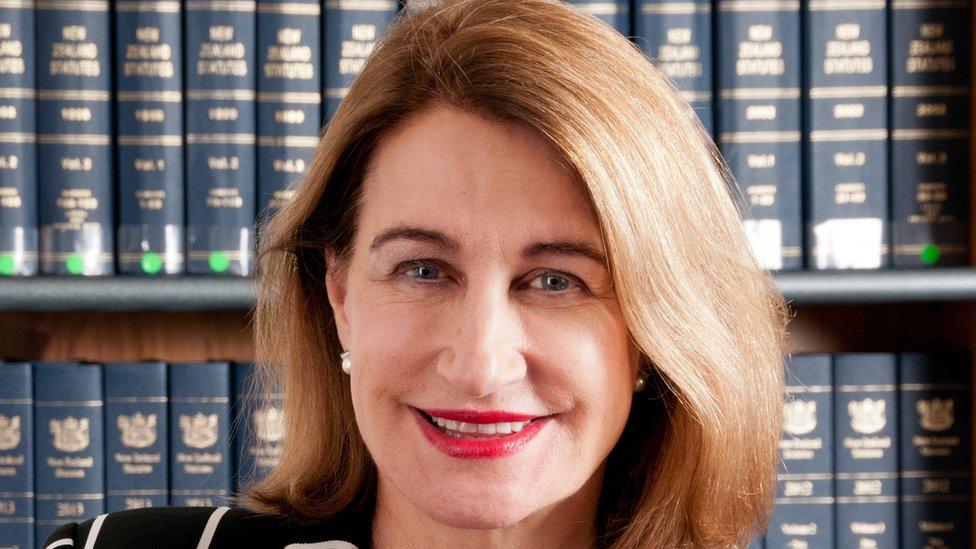Child sexual abuse inquiry faces huge task
- Published
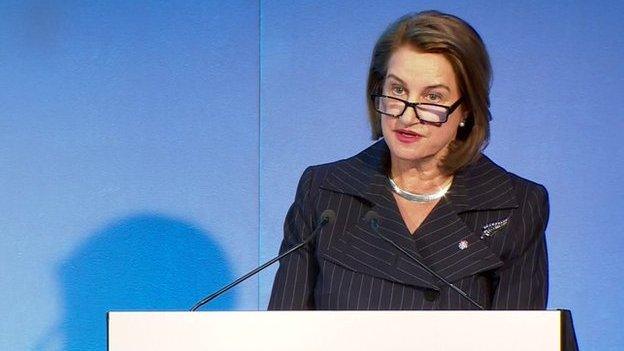
Justice Lowell Goddard chairs the inquiry
The Independent Inquiry into Child Sexual Abuse formally opened in July - but it won't begin public hearings until next year. So what is it up to?
Justice Lowell Goddard, the senior New Zealand judge leading it, opened the inquiry, external with these words: "The task ahead of us is daunting. The sexual abuse of children over successive generations has left permanent scars."
She wasn't overestimating the challenge.
Her terms of reference mean she will have to examine the causes and effects of child abuse in all state or non-state institutions, as far back in history as required.
That could take 10 years. No-one really believes the official estimate, that it could take five.
After all, four months have slipped by since Justice Goddard made her opening speech without there being a single public hearing.
In that time her team has been working on the tricky job of setting up a structure capable of achieving this task.
Technical hitch
New offices have been occupied in Millbank Tower in Westminster - the stunning view from its windows taking in many of those institutions it will be scrutinising, not least Parliament.
Offices are also being set up around the country.
Lawyers and advisers have been appointed. A £17.9m budget has been established for the next year.
The inquiry website opened for business, after its designers spent weeks trying out their ideas on those who will use it - including journalists like me.
Unfortunately a recent decision to shorten the site's web address led to a technical hitch and red faces when officials had to admit two weeks' worth of submissions from victims of abuse had been lost.
Trust is still a huge issue for the inquiry and this didn't help.
Behind closed doors
The inquiry will examine the abuse of children in five different categories - public life, including politics, education and religion, criminal justice and law enforcement, local authorities and voluntary organisations, and national and private service organisations.
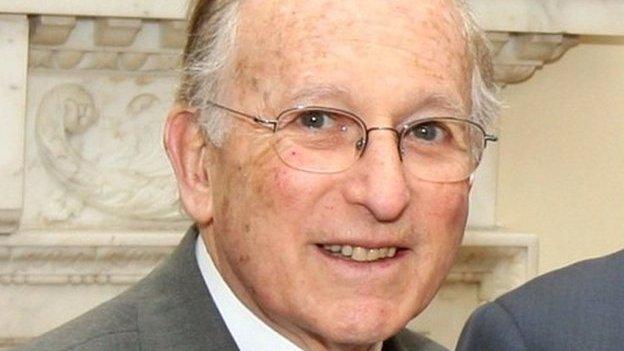
The allegations against Lord Janner spanned four decades
It will attempt to dig out the truth using three different strategies: research, public hearings - due to start next year - and something Justice Goddard has called The Truth Project.
This involves victims of abuse telling their stories behind closed doors in the hope that the freedom this gives them to talk allows them to shed light on the patterns of abuse and why many crimes went unreported for so long.
The Truth Project has the benefit of allowing the inquiry to take testimony from a wide range of individuals who have been abused.
This is valuable. Some of those have been very clear that they wish to have their say, for their own cases to be scrutinised.

Official purpose of the inquiry:
To consider the extent to which state and non-state institutions have failed in their duty of care to protect children from sexual abuse and exploitation
To consider the extent to which those failings have since been addressed
To identify further action needed to address any failings identified
To consider the steps which it is necessary for state and non-state institutions to take in order to protect children from such abuse in future
To publish a report with recommendations

However, the sheer scale of the inquiry suggests that very few individual cases will be closely investigated.
It has also been made clear that any allegations of criminality will be handed to the police, specifically Operation Hydrant - a national police team co-ordinating dozens of investigations in forces around the country.
Recently officials announced that anyone taking part in the Truth Project would be prohibited from talking about what happens at its meetings, a measure to prevent the accounts of other victims being overheard and made public.
This is a public inquiry very much being conducted in the social media era.
Now that the inquiry is up and running Justice Goddard has decided where to start.
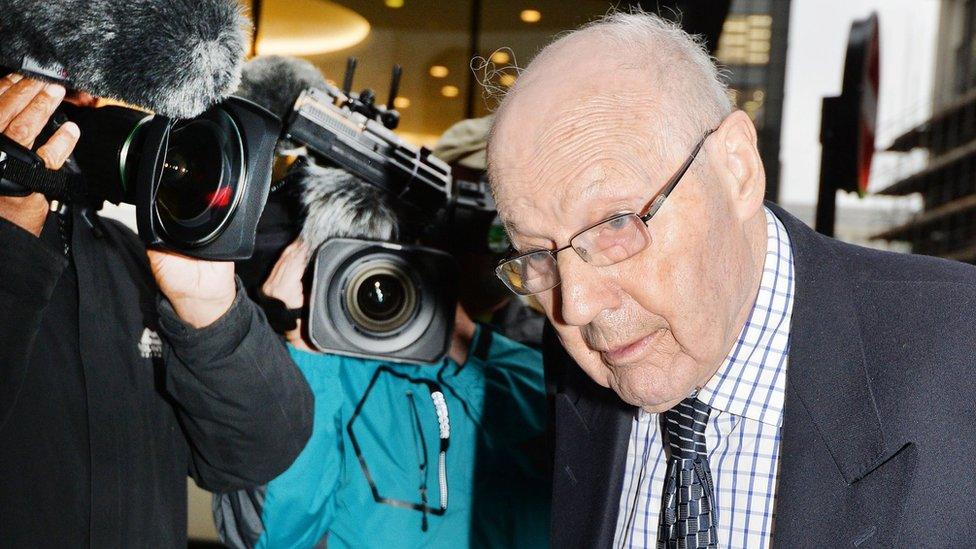
Peter Ball was jailed for sexual assault
Earlier this year, prosecutors decided it would not be in the public interest to charge the Labour peer Lord Janner with child abuse - and it looked likely the allegations he faced might be the first strand of the inquiry.
But that decision was overturned, external and Lord Janner is now expected to face a "trial of the facts", where a jury will decide what happened, with no finding of guilt or conviction because, as Lord Janner has Alzheimer's, he cannot defend himself.
As a result the inquiry must set this case aside while it goes through the criminal courts.
However, another high-profile prosecution has now been concluded - resulting in jail for Bishop Peter Ball, external, the most senior Anglican clergyman to be found guilty.
This provides the opportunity for abuse in the Church to be given the inquiry's early attention.
The Church of England says it will carry out its own inquiry if Goddard doesn't get on with the job within six months.
Church officials have already been digging through the files for troubling cases which have not been dealt with properly in the past.
The inquiry still has its critics, but the once-vociferous campaign by victims and survivors who say they don't trust it to get to the truth is less visible than it was earlier in the year.
So now the work begins, picking through the darker secrets of recent British history, on behalf of thousands of abused children.
- Published7 October 2015
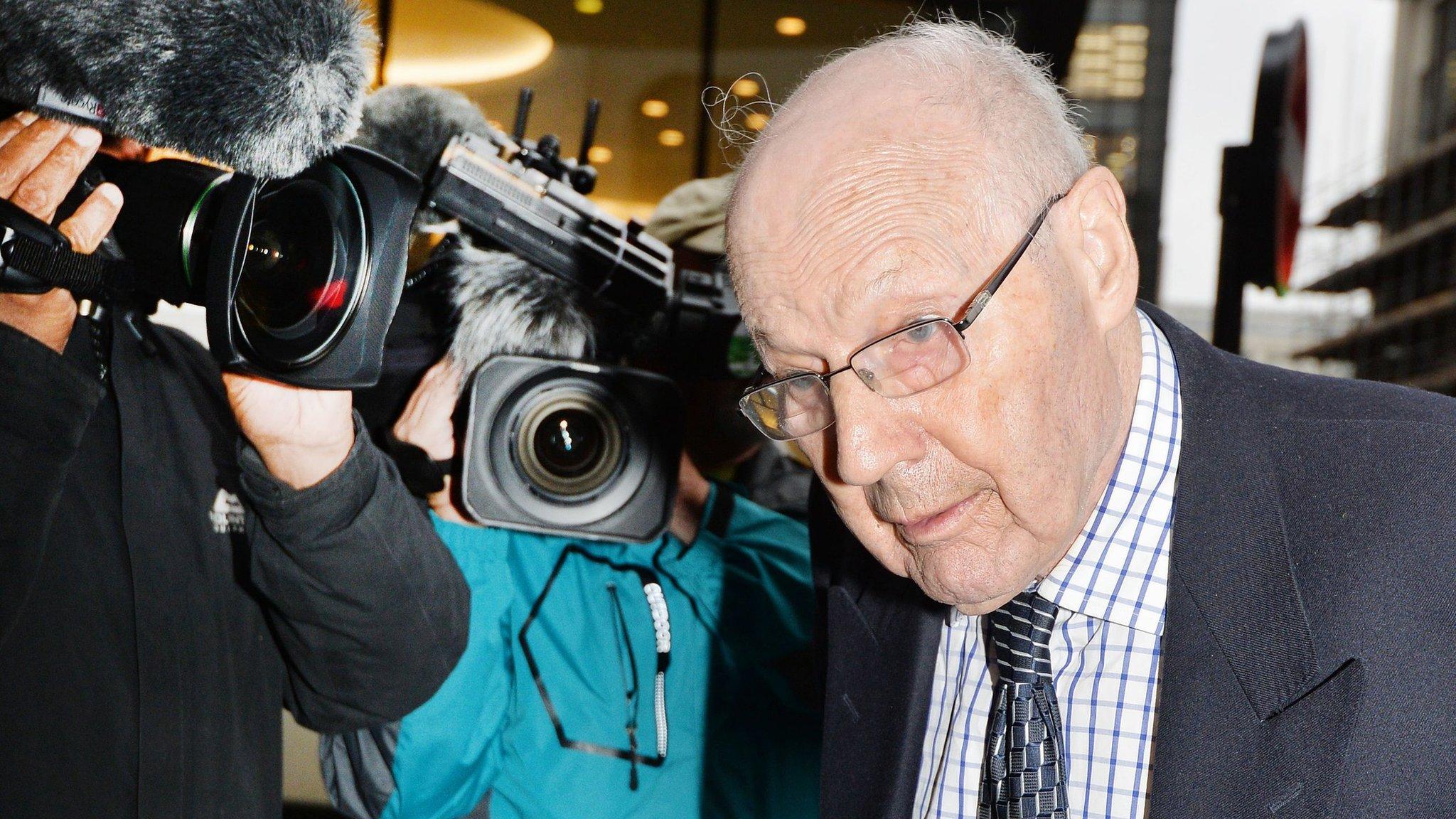
- Published13 July 2015
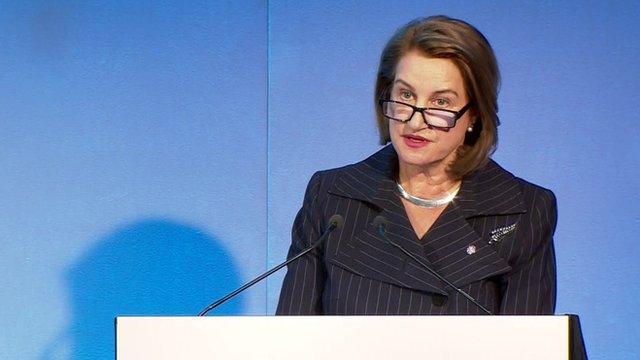
- Published9 July 2015
